IBESI Replication Toolkit:
Empowering Social Innovation Across Europe
The Replication Toolkit is a comprehensive resource developed under
the IBESI project, designed to share the project’s learnings and methodologies with other EU regions aiming to foster social innovation and entrepreneurship.
Whether you are a policymaker, a representative of a business support organization, a social entrepreneur, or a researcher, this toolkit is tailored to provide you with the tools and knowledge necessary to implement impactful social
innovation initiatives in your region.
Integrated Baltic Ecosystem for Social Innovation (IBESI) was a Horizon Europe project (January 2023 – January 2025) aimed at raising awareness and facilitating access of Baltic States’ social entrepreneurs to the resources of local and pan-European innovation ecosystems. In light of the lack of social enterprises with profit-generating business models and their poor integration within existing entrepreneurship ecosystems, the project took on several initiatives focused on strengthening the social economy of the Baltic States.
Our goal is to ensure that the experiences and successes achieved throughout the project can serve as a blueprint for others, promoting the development of sustainable and inclusive innovation ecosystems. This interactive webpage gathers essential project deliverables, practical recommendations, and curated resources to make the learnings easily accessible to a broad audience.
Below you can read about our social entrepreneurship training module, crowdfunding pilot, alternative finance roadmap, impact hackathons and accelerator programmes, and social innovation best practices.
IBESI in Numbers
Social Entrepreneurship and Social Innovation Training for Startup Hubs
Overview Report of the Training Pilots
Objective: To provide an overview of the training pilot module and to assess whether it is a useful tool for promoting social entrepreneurship and for creating greater linkages between innovation ecosystem actors.
The training pilots were aimed at informing traditional startups and businesses about social entrepreneurship and social innovation concepts. The selected and piloted approach was to bring these ideas and methods directly to already existing entrepreneurial hubs, e.g. business support programs, incubators, accelerators, networks of startups, etc.
The project approached the hubs and offered them a training module that could be incorporated within their programme or event series. Thus, the secondary goal was to also transfer knowledge to and build capacities among traditional innovation actors, e.g. hub managers, about social entrepreneurship. Three pilots were conducted, once in each Baltic State.
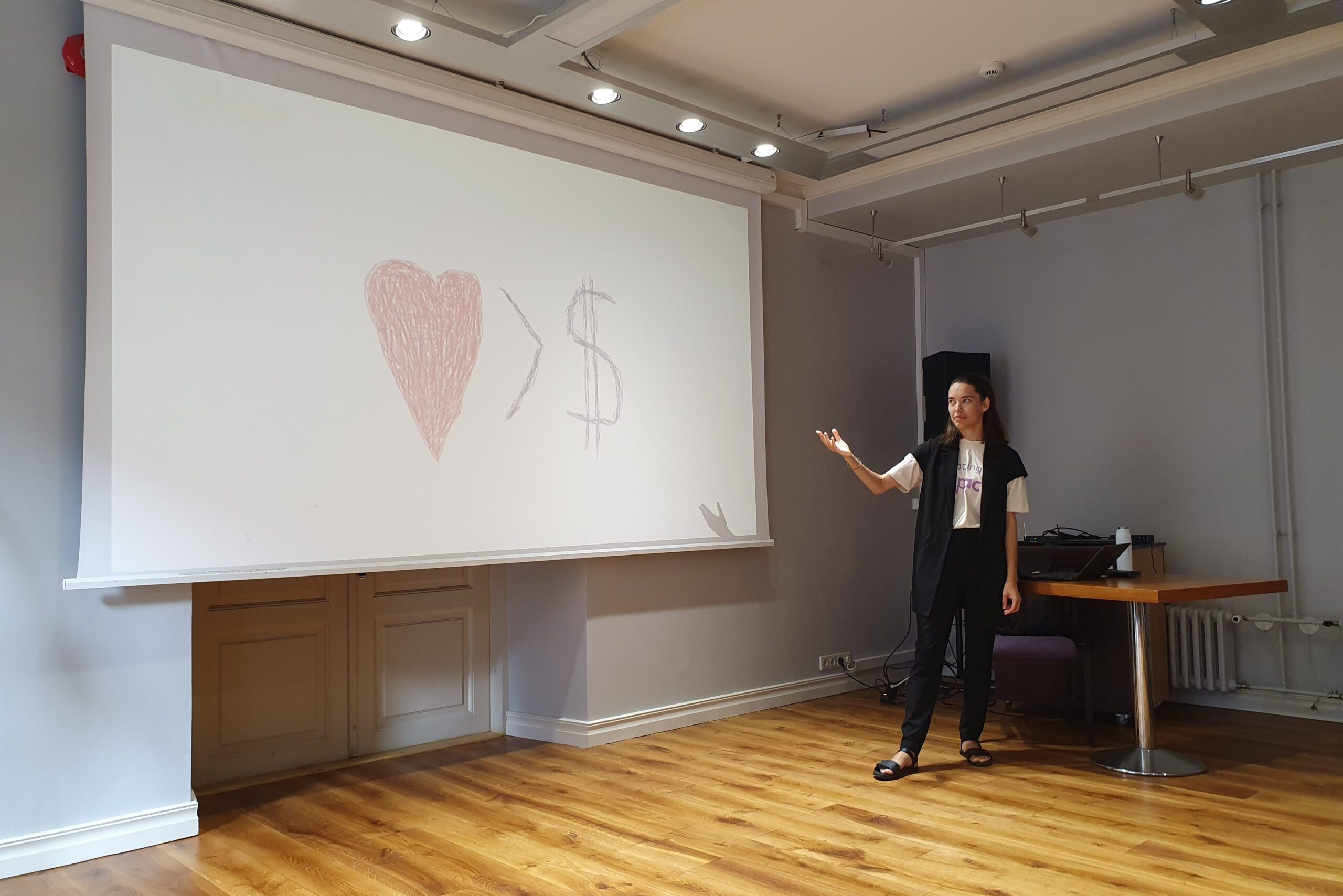
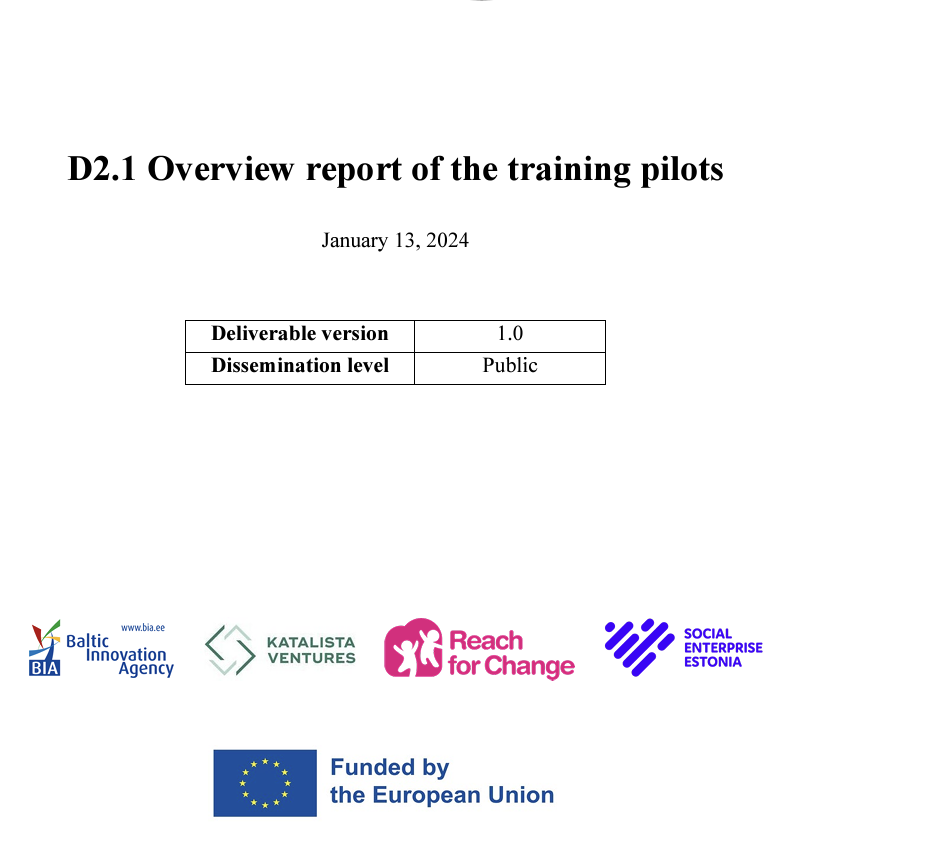
The training module “Social Enterprise from Niche to Norm”, coordinated by Social Enterprise Estonia, was piloted three times in Estonia, Latvia, and Lithuania. The training was structured according to the Kolb method, which Social Enterprise Estonia has used for years in their trainings. First, the theory is discussed with the participants, then there is the practical part, and after that, it all comes together with reflection.
Sample Training Programme Schedule
The training module was used in two variations. Although originally created as a 3-hour programme, it was adjusted to a 1.5-hour format to cater the needs of the two hubs. The components that were skipped in the shorter version are marked with an asterisk (*).
● What do you want to get out of this seminar? Audience writes their thoughts on sticky notes, and we discuss some answers
● 15 min — 20 min | Audience answers the question, “What does social entrepreneurship mean to you?”
o Why do you see it that way?
● 20 min — 40 min | Our definition
o A social enterprise is a company that is committed to creating a positive impact through a business model
o Examples — 3 from each Baltic country
● 40 min — 1h | What are the characteristics of a social enterprise?
o The main goal is to positively influence people’s livelihood, well-being, or the environment, which is measured
o A sustainable economic model
▪ The company offers goods or services for a fee, earning a profit
▪ 50.1% of the profit is reinvested in achieving the main goal
● 1h — 1h 15 min | Audience answers the question, “How well are we doing with social entrepreneurship?” – On a scale of 1-10, where 10 – is really good, 1 – really bad (* – skipped in a short version)
o We can use the Mentimeter
o Discussion why they think like that
● 1h 15 min — 1h 30 min | Our explanation of the situation in your country (* – skipped in a short version)
● Different sources of motivation
● Different measure of success
● Very similar otherwise
● A lot can be learned from successful for-profit entrepreneurs
● 1h 50 min — 2h | Preparation in groups
● 2h — 2h 10 min | Debate
● 2h 10 min — 2h 15 min | Brainstorm
● 2h 15 min — 2h 20 min | Sharing the ideas
● Do you have any questions
● Feedback survey
● Reflection – What word would you use to sum up today’s workshop?
● Key Takeaway – The primary work of every entrepreneur, social and for-profit, involves solving problems. Together, we can change social entrepreneurship from a niche to the norm
Access to Financing for Social Enterprises
Evaluation of Crowdfunding Pilot Programme
Objective: To assess the overall effectiveness of the Crowdfunding pilot programme conducted within the IBESI project.
The evaluation aims to generate insights that will contribute to enhancing the future success of social business crowdfunding competence development initiatives. The evaluation covers:
● The outcomes and measurable results of the Crowdfunding pilot program
● The knowledge and readiness of Baltic social businesses to successfully develop and execute crowdfunding campaigns
● The critical success factors that contribute to the effective execution of crowdfunding campaigns for social businesses
● Suggestions for improving the Crowdfunding program and similar initiatives

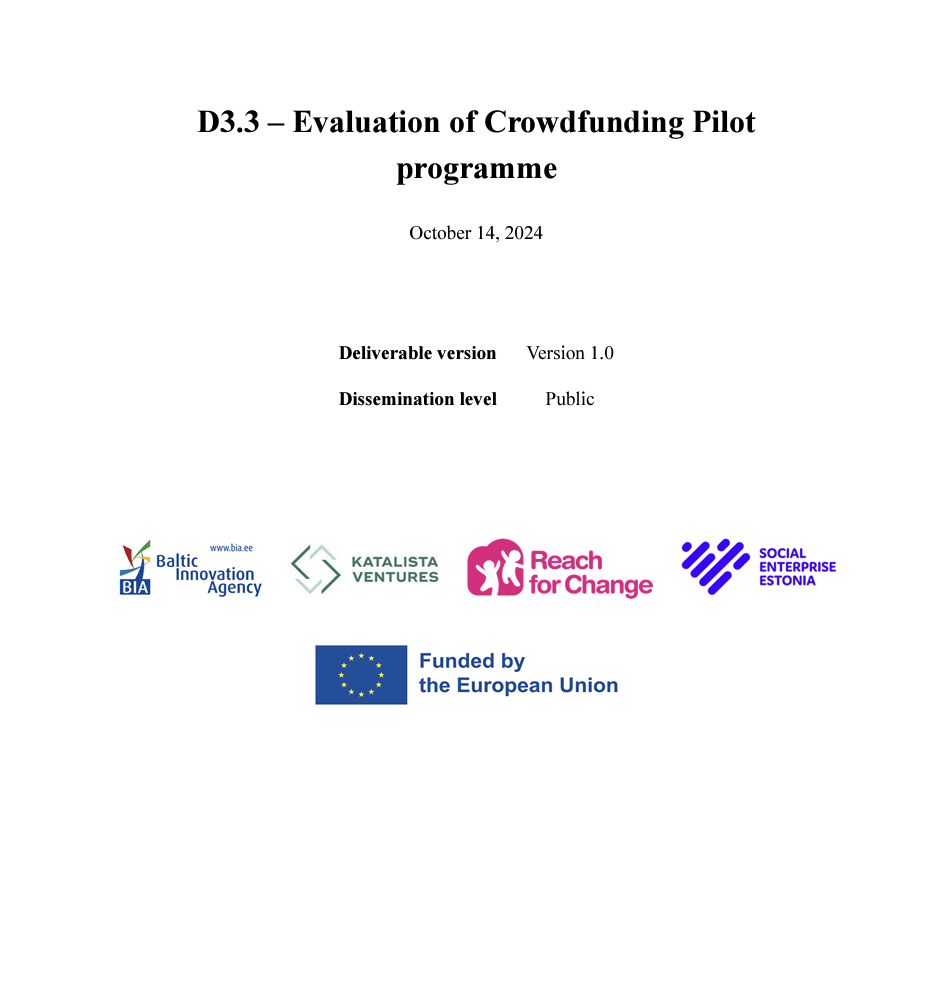
IBESI Crowdfunding Materials
Alternative Finance Roadmap
Objective: To provide a quick overview of key funding and financing instruments accessible to social enterprises in the Baltic countries.
Social enterprises, along with “traditional” SMEs, startups, and Non-Profit Associations (NPAs), often struggle to figure out which funding and financing opportunities are available to them. The absence of a comprehensive, up-to-date database for all opportunities in the Baltic region contributes to this challenge. Addressing this need, the IBESI project has created the “Alternative Finance Roadmap”, which consolidates the most relevant funding sources for Baltic social entrepreneurs.
Encompassing public and private sources, it outlines various instrument types: grants (including venture philanthropy), debt and equity capital, crowdfunding and Social Impact Bonds. This roadmap compiles available information on diverse opportunities. It is a practical list of available finance sources that brings together existing knowledge in the field.
The roadmap was compiled in September 2023 and minor adjustments were made in February 2024.
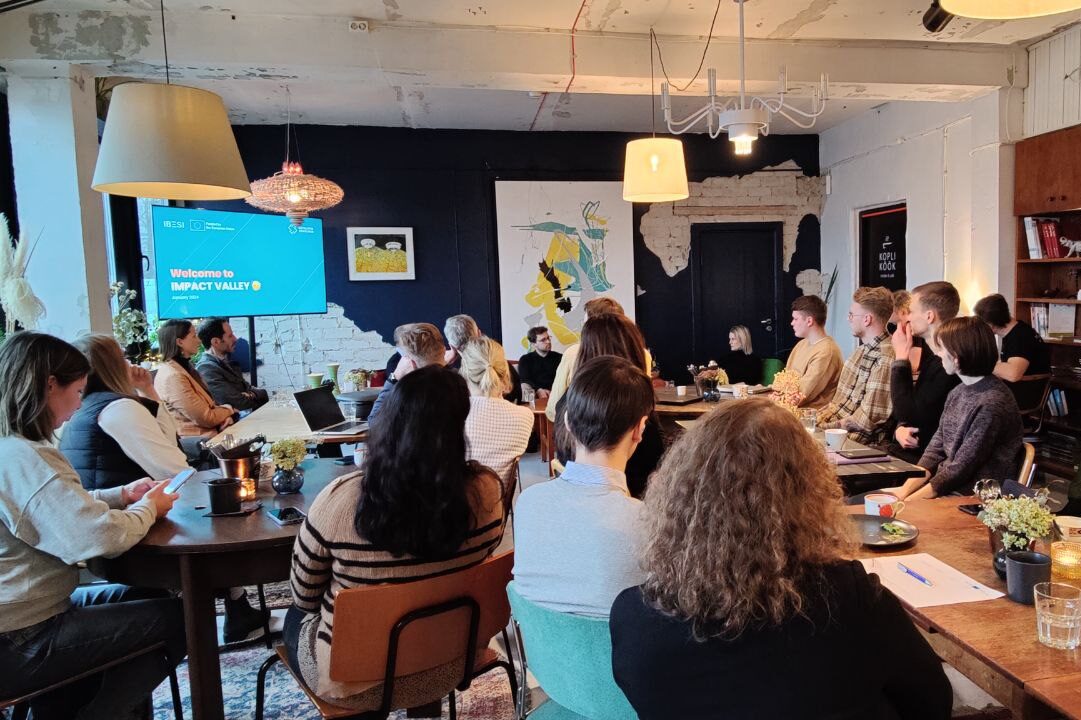

Knowledge is a Treasure
Considering the still developing social economy ecosystems in the three Baltic states, there is still a lack of financial instruments designed for social enterprises. If you are a social entrepreneur or interested in learning more about funding opportunities for social enterprises to support their sustainability and growth, check out the following IBESI publications:
Capacity building and interlinking of social innovation actors
Impact Evaluation of the Hackathon and Accelerator
Objective: To provide an overview of the hackathons (Impact Hackathon and Impact Crash Course) and acceleration programmes (Impact Valley), to analyse the development of the participating teams and their ideas, and to provide insights for planning any future hackathons and acceleration programmes.
The objective of the hackathons was to support the development of early-stage business ideas and potentially the creation of new social enterprises. The Impact Hackathon accepted both
for-profit startups and non-for profit associations, while the Impact Crash Course focused mostly on helping existing non-profit associations become more financially stable by developing new revenue streams and business models.
The Impact Valley acceleration programmes aimed to support the development and growth of social enterprises/impact businesses to help them become more financially resilient, scale, and eventually fundraise.
Both hackathons and acceleration programmes sought to connect the participating teams with the wider innovation ecosystem through trainers, mentors and investors of various backgrounds.

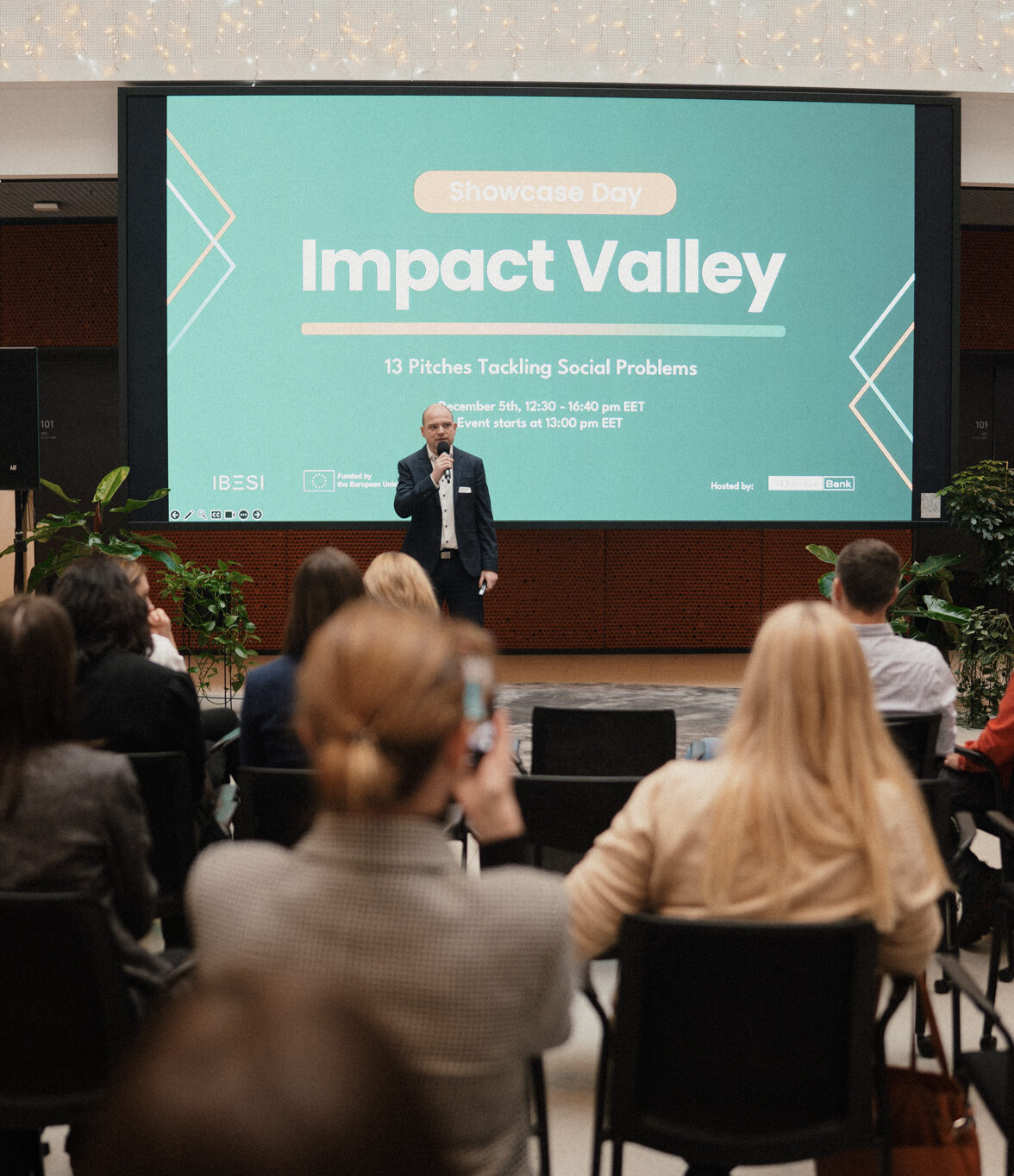
Quick Glance at the Hackathon Insights
● Insight: Non-profits in the cohort showed a strong need for training in transitioning from grants to sustainable revenue models.
● Recommendation: Incorporate detailed workshops on financial planning and alternative funding models in future hackathons.
● Insight: Participants had mixed preferences for workshop timings (daytime vs. evenings), impacting attendance at key events.
● Recommendation: Conduct a pre-programme survey to identify optimal scheduling and maximise participation.
● Insight: Participants valued networking but desired more direct and personalised connections with ecosystem stakeholders.
● Recommendation: Introduce structured matchmaking events and facilitate in-person networking opportunities where possible.
● Insight: Peer interaction was highlighted as a potential multiplier for knowledge sharing and collaboration.
● Recommendation: Add peer-to-peer check-ins and team collaboration sessions to future programmes.
● Insight: Traditional pitch formats favor startups over non-profits.
● Recommendation: Experiment with alternative formats, such as impact showcases or storytelling sessions, focusing on social impact metrics.
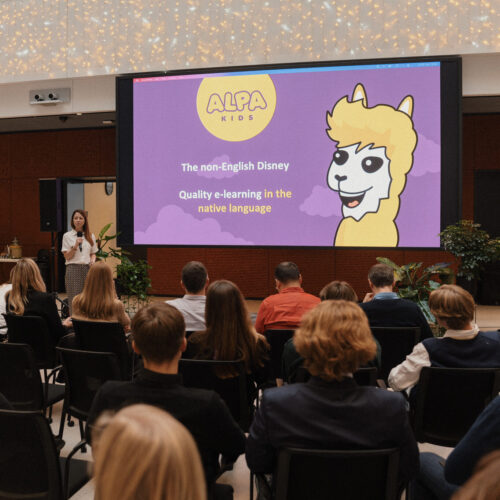
Quick Glance at the Accelerator Insights
● Insight: The focus on social and environmental impact set the accelerator apart and resonated with participants.
● Recommendation: Maintain a strong emphasis on impact-driven metrics and foster a community of mission-aligned startups.
● Insight : Bootcamps with external evaluators not only ensure a fair and consistent participant selection process but also provide valuable networking opportunities for shortlisted teams.
● Recommendation : Retain bootcamps as an integral part of the participant selection process in future programmes.
● Insight: Many startups were too early-stage for substantial investment despite gaining valuable insights from investor panels.
● Recommendation: Host mock investor meetings and workshops on “thinking like an investor” to refine pitching and collaborate with angel investment networks to help bridge the gap and facilitate early investment opportunities.
● Insight: Virtual formats limited engagement among participants.
● Recommendation: Blend virtual sessions with more frequent in-person team-building activities to foster stronger cohort bonds.
● Insight: Participants valued mentorship, ecosystem introductions and extensive guidance but needed sustained support after programme completion.
● Recommendation: Consider allocating a follow-up fund for top-performing teams to maintain momentum and growth.
Scaling Tested Innovation Models
Social Innovation Best Practices
Objective: To document best practices in social innovation across the Nordic and Baltic regions, particularly focusing on Sweden, Estonia, Latvia, and Lithuania.
This report is a culmination of insights and best practices discussed during the IBESI project workshops and events held from May to October 2024. Policymakers, social innovators, and academics across Sweden, Estonia, Latvia, and Lithuania shared practical models, challenges, and new strategies to advance social impact.
The report serves as a practical resource for policymakers, social entrepreneurs, and stakeholders interested in adapting these insights to their local contexts. It covers both policy-driven approaches and practical applications, demonstrating how various models address social challenges in different environments.
The report was composed in November 2024.
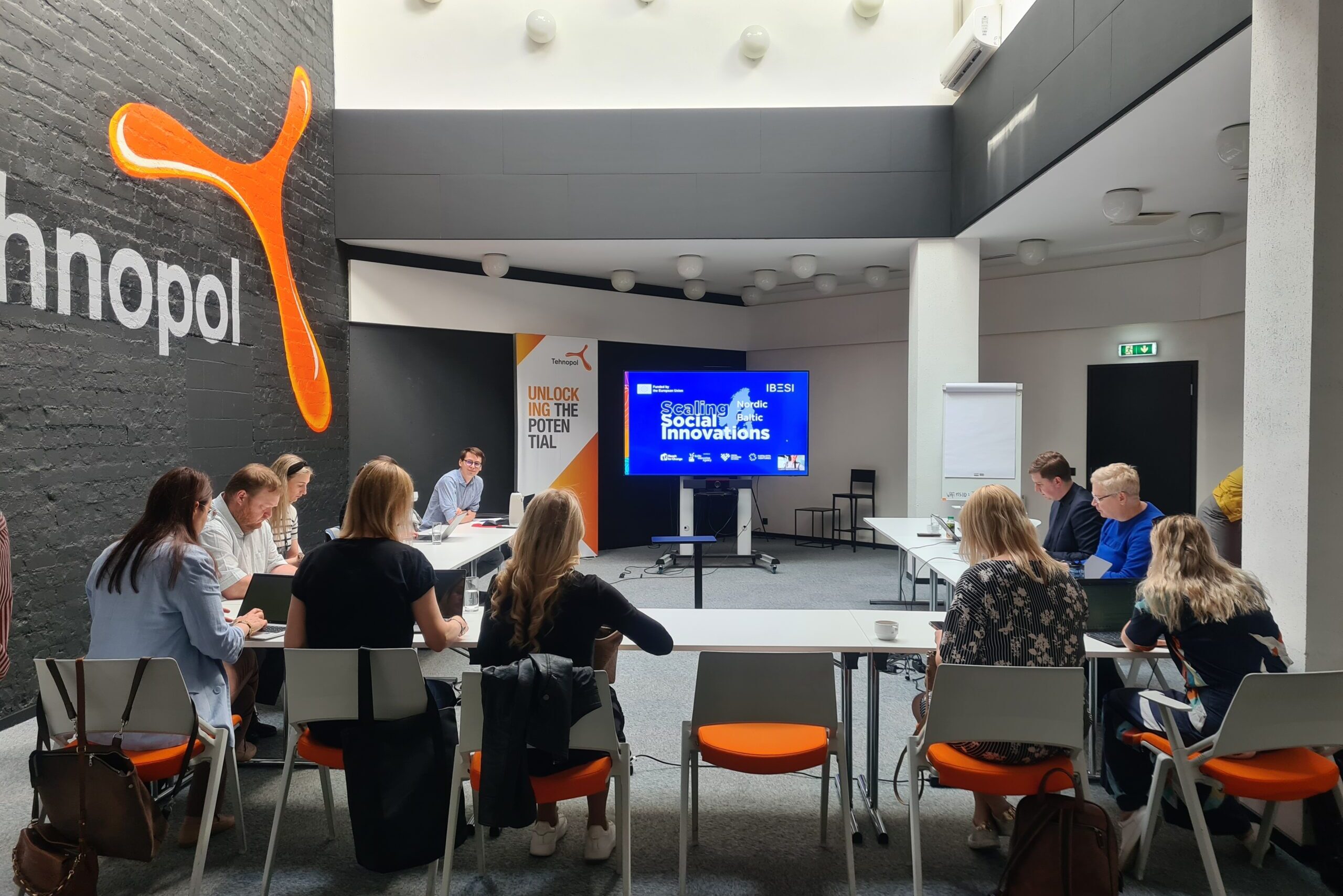
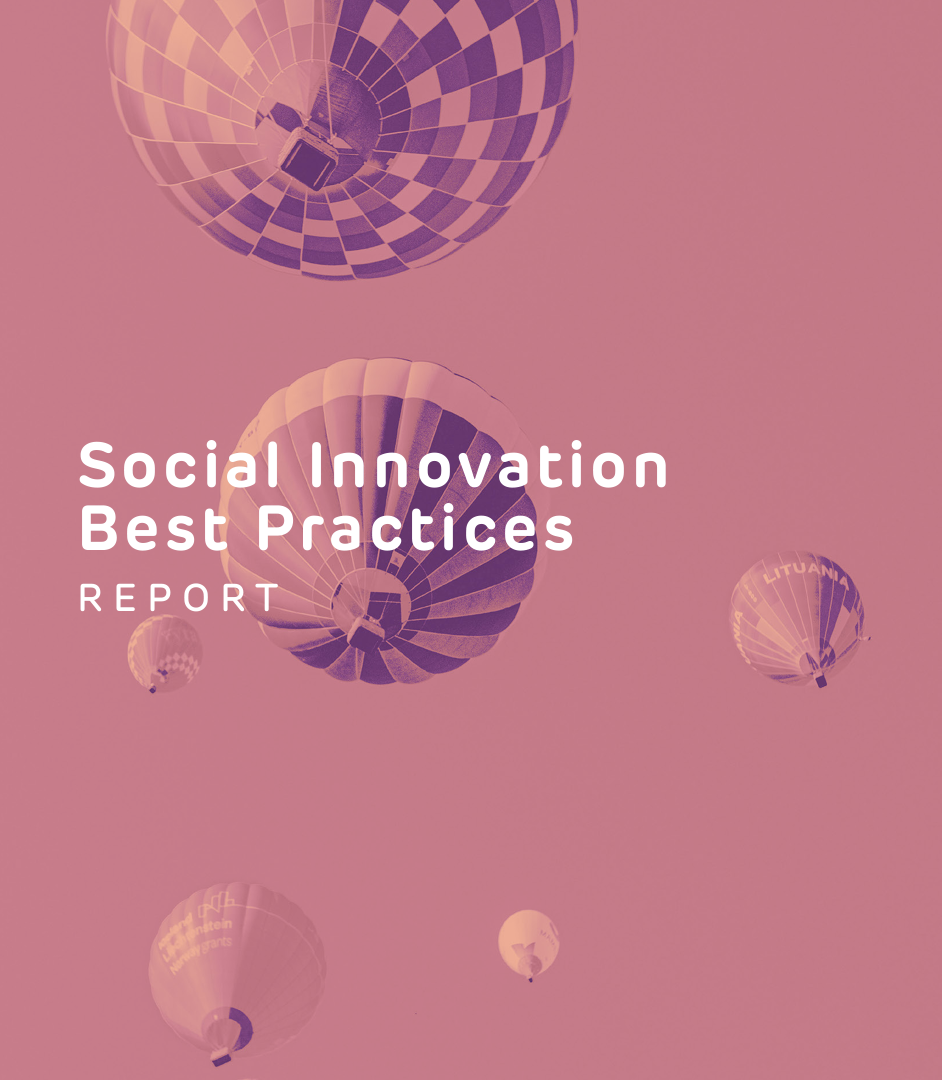
Impact of Policy on Social Innovation
The IBESI project was dedicated to expanding social innovation across the Nordic and Baltic regions. Social enterprises in these regions often face barriers, including limited funding options and lack of standardized impact metrics. IBESI aimed to address these barriers by creating an interconnected ecosystem that facilitates the sharing of successful models across Sweden, Estonia, Latvia, and Lithuania. The initiative also explored sustainable financing and the impact of policy on social innovation.
Consortium Behind IBESI
Baltic Innovation Agency (BIA) provides innovation, clustering and technology development related services to public, private and third sector organizations. BIA’s main competence areas include startup consulting, cluster management, strategic and business planning, technology transfer and commercialization, market research and analysis. Altogether, BIA has implemented more than 100 international cooperation projects with more than 20 years of experience in innovation management and business development.
Role within the IBESI consortium:
BIA was the consortium’s leading partner, using its prior experience in projects of similar scale to ensure smooth coordination of the project. BIA was mainly responsible for the project management and communication activities,
while also leading or co-authoring the impact evaluation tasks and contributing to all other work packages by providing strategic and methodological inputs, rich contact network and mentorship for the social enterprises.
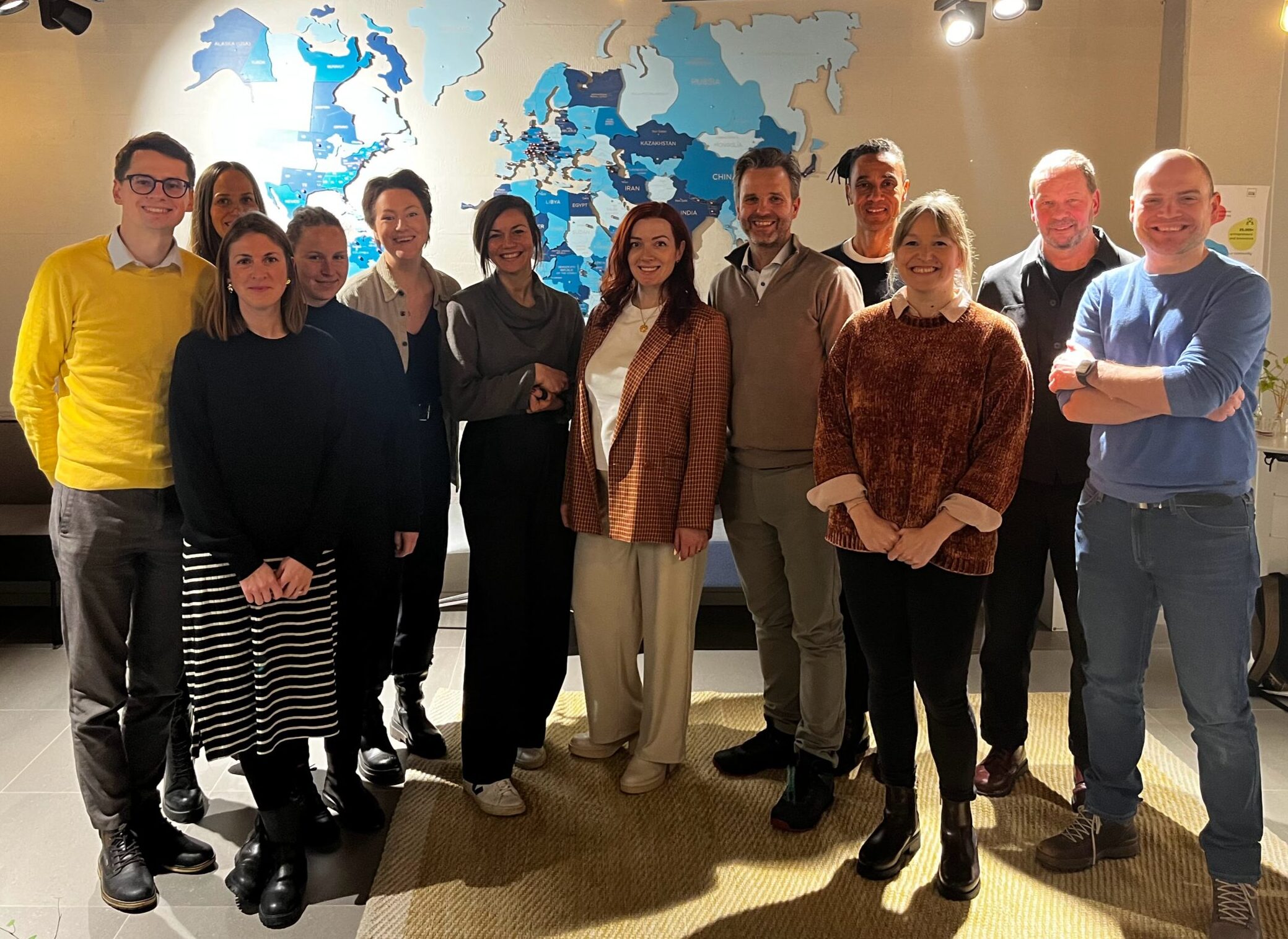
Acknowledgement
This Replication Toolkit has been created within the project: “Integrated Baltic Ecosystem for Social Innovation” (IBESI). The project consortium includes Baltic Innovation Agency, Social Enterprise Estonia, Katalista Ventures and Reach for Change.
Funded by the European Union. Views and opinions expressed are however those of the authors only and do not necessarily reflect those of the European Union or the European Innovation Council and SMEs Executive Agency (EISMEA). Neither the European Union nor the granting authority can be held responsible for them.
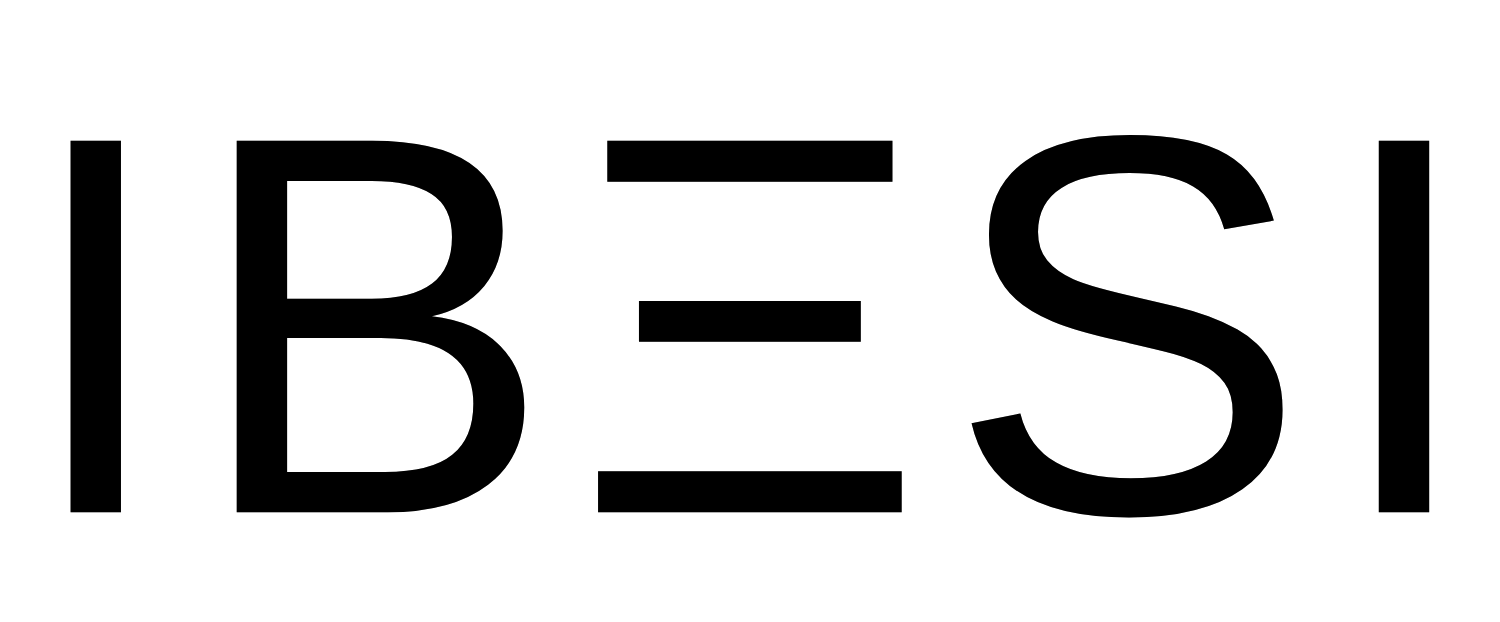

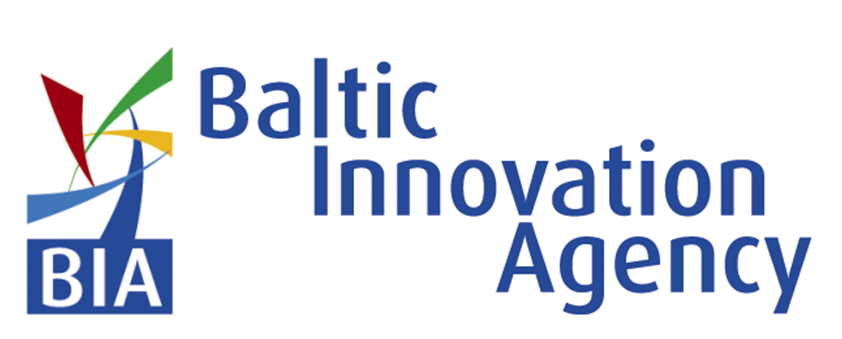
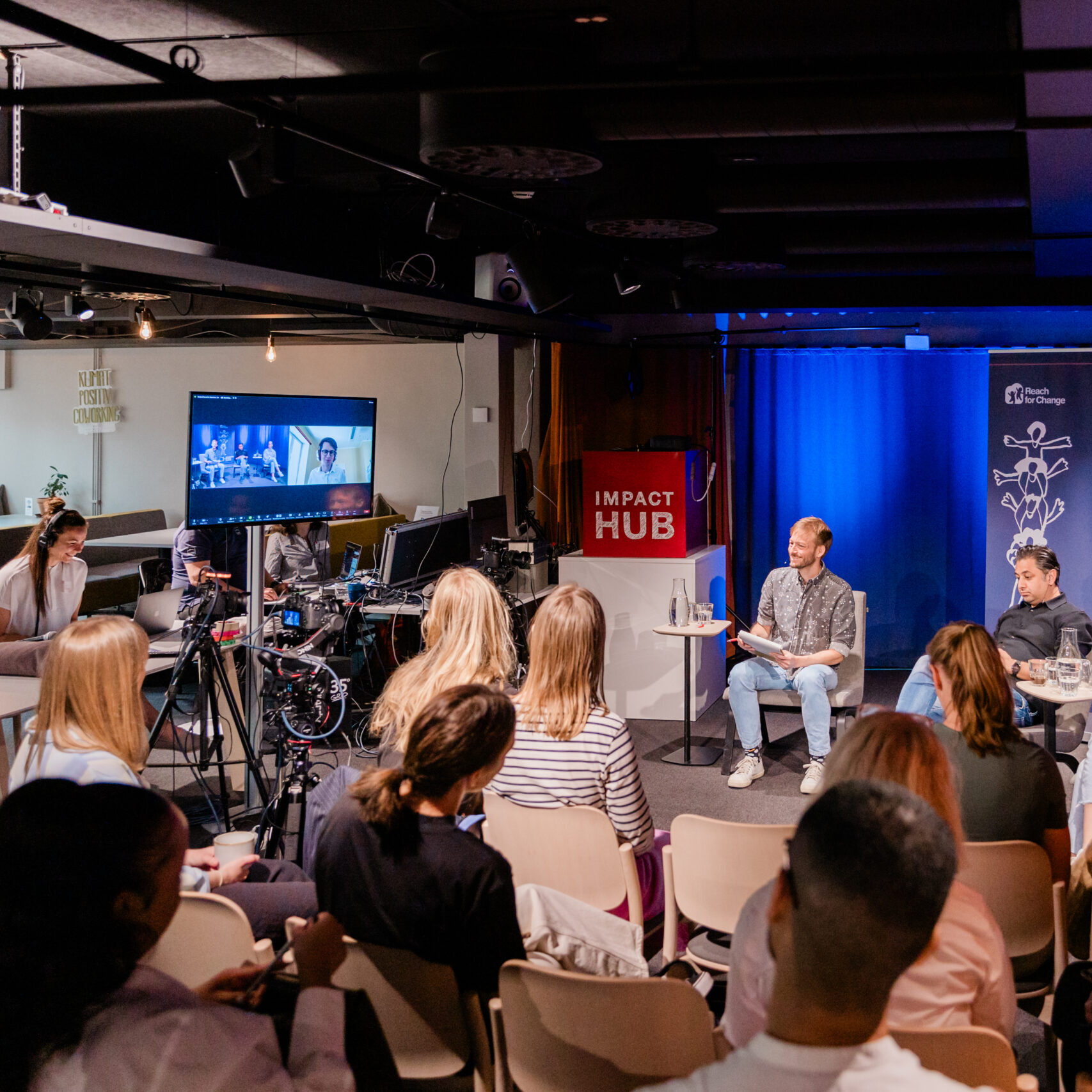
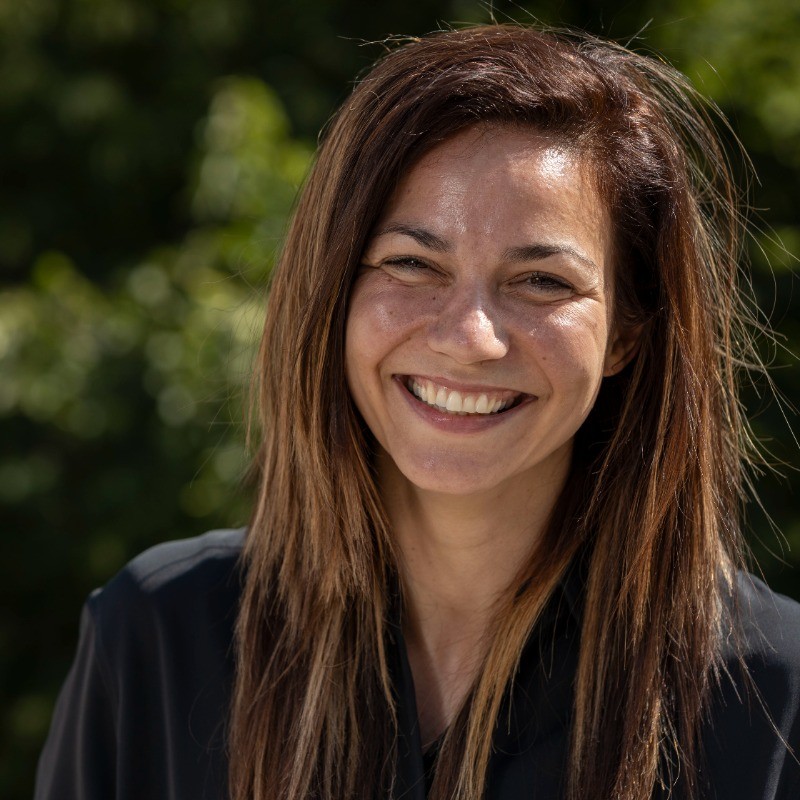
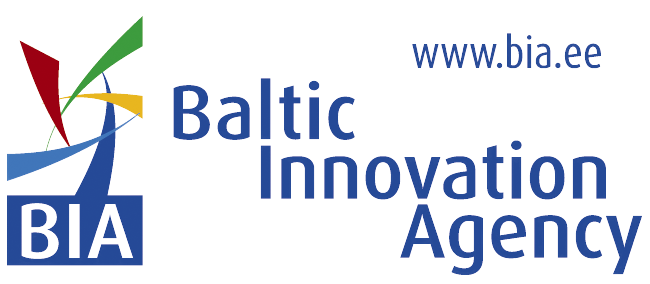


Social Enterprise Estonia (SEE) is an non-profit association operating in the public interest since 2012. The goal of the organization is to increase the number, capacity and impact of SEs in Estonia and to increase the value of social entrepreneurship in Estonian society. SEE develops the ecosystem of SEs (incl. legislation), the community of social organizations, increases citizen participation and awareness of social entrepreneurship and its opportunities.
Over the years, SEE has supported its members and organizations in the wider field by organizing trainings, co-creation projects, supporting them in impact assessments and being an advocate for the sector at the national level. SEE is a strategic partner for the Estonian Ministry of the Interior.
Role within the IBESI consortium:
SEE’s role within the consortium was to design the social entrepreneurship and innovation training module for existing hubs training programmes and lead its implementation, to organise and deliver hackathons and associated activities, and to coordinate the project’s communication activities on the virtual Impact Community on Slack. SEE also providde mentorship and support for the participating SEs.